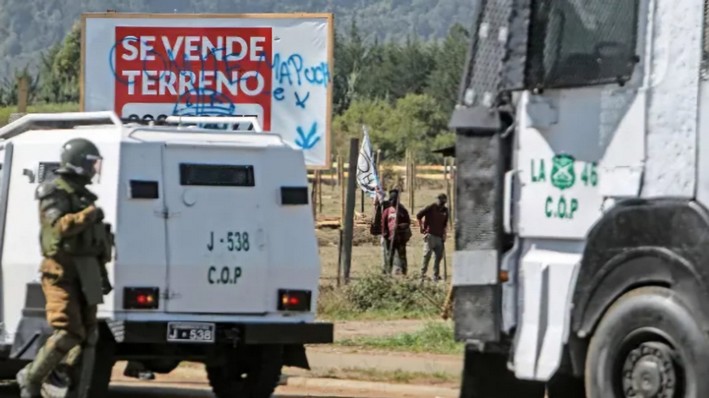In its resolution, the Inter-American Court of Human Rights ruled that fundamental guarantees of the convicted individuals were violated.
A debate centered on the potential effects in other cases involving land usurpation was sparked by the resolution of the Inter-American Court of Human Rights (IACHR), which ruled against the State of Chile for the trial faced in the early 90s by 135 Mapuche members of the Council of All Lands. According to the court, fundamental guarantees of the convicted were violated.
As a result, it ordered individual compensations ranging from US$20,000 to US$25,000 and legal adjustments.
The debate showcased differing arguments in Letters to the Editor of "El Mercurio," where lawyers Pablo Urquizar, former coordinator of the southern macrozone, and Rodrigo Lillo presented their views.
The former emphasized that the IACHR "argues that the takeover or occupation of private land can constitute a form of peaceful protest protected by the American Convention on Human Rights" and stated that, a year after the enactment of the Land Usurpation Law, the Court's interpretation "could relativize certain aspects of this regulation, particularly impacting the southern macrozone."
Disagreeing with Urquizar, Lillo expressed that the precedent set by the Court is that "the right to peaceful and unarmed assembly often serves as the natural vehicle for collective action, allowing individuals to align visions and interests, and enabling the expression of opinions, proposals, demands, and claims."
Regarding the impact of this ruling on other cases, lawyer Richard Caifal sees it as "unlikely, since rulings are between the parties involved—in this case, the convicted individuals and the State."
He adds that "its enforcement is not extended to other instances" and that "it must also be considered that legislation has significantly changed since that time." Concerning the Court's recommendation to adjust Article 454 of the Penal Code, which "presumes anyone in possession of a stolen good as the perpetrator of theft or robbery," he calls it "untimely."
When contacted to elaborate on the ruling, lawyer Lillo declined to participate, citing that he had already stated his position.
Urquizar, meanwhile, warned of "indirect impacts" and pointed out that, in a partially dissenting opinion...
He notes that in the country, "land occupation is classified as a criminal offense—usurpation—which affects multiple rights such as property, the inviolability of the home, or privacy." He argues that the IACHR's interpretation "could be used, especially by radicalized groups, to legitimize their territorial control under the pretext of the right to protest."
Source: Subscription edition ofEl Mercurio







Comentarios (0)
No hay comentarios aún. ¡Sé el primero en comentar!
Deja un comentario